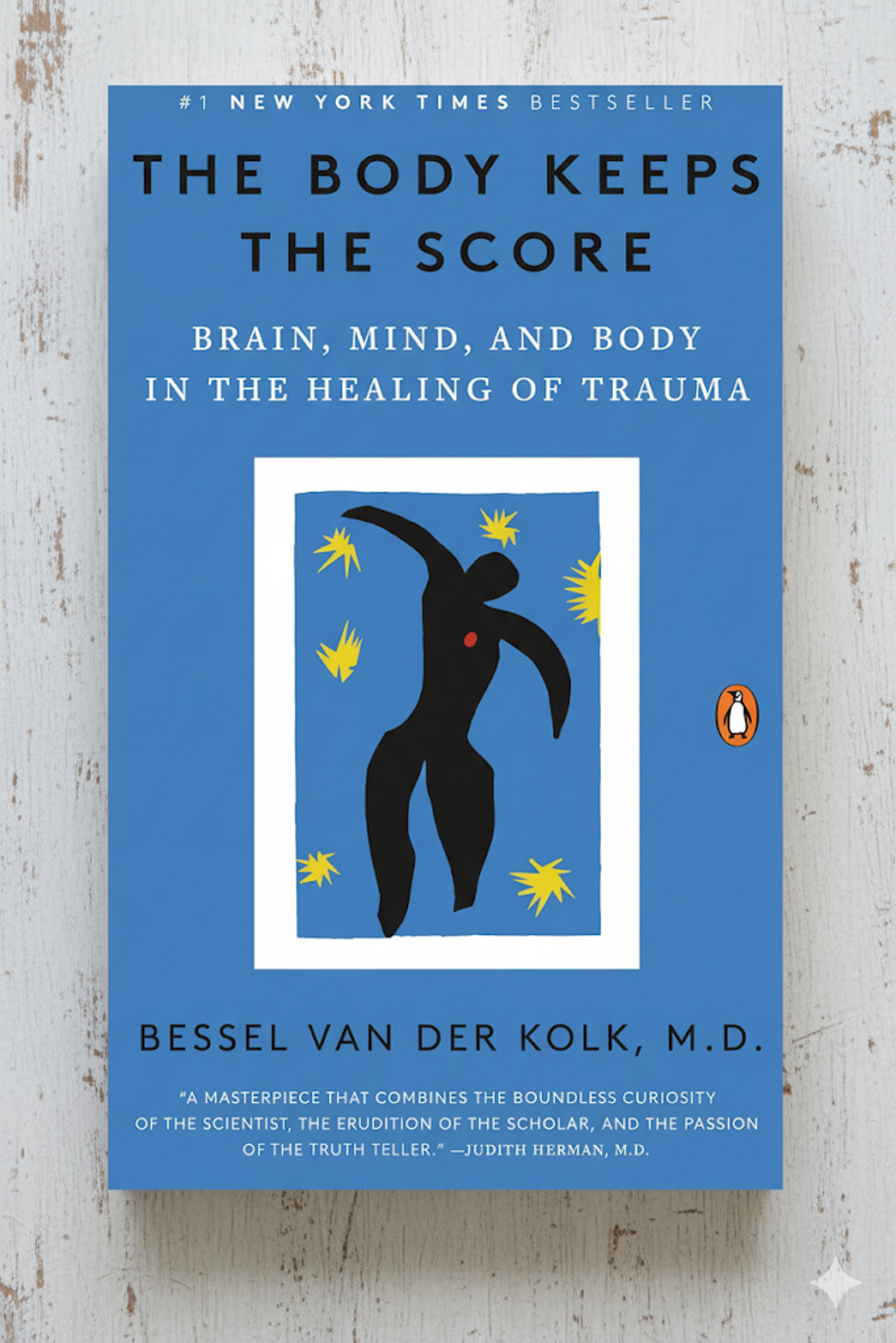
The Body Keeps the Score Review: Understanding Trauma & Healing
Dive into "The Body Keeps the Score" by Dr. Bessel van der Kolk. Our in-depth review explores its insights on trauma, its impact on the brain & body, and paths to healing. Essential reading for mental health.
"The Body Keeps the Score" by Bessel van der Kolk: A Transformative Look at Trauma and Recovery
In the landscape of mental health literature, Dr. Bessel van der Kolk's "The Body Keeps the Score: Brain, Mind, and Body in the Healing of Trauma" stands as a monumental work. This book isn't just an academic text; it's a profound, compassionate, and revolutionary exploration of how trauma reshapes us – physically, neurologically, and psychologically – and, crucially, how we can heal.
Recognized globally and frequently cited, "The Body Keeps the Score" has become essential reading not only for mental health professionals but also for anyone seeking to understand the pervasive effects of trauma on individuals and society. In this comprehensive review, we'll delve into its groundbreaking insights, explore its key themes, and explain why it remains a foundational text in the field of trauma recovery.
What is "The Body Keeps the Score" About? The Science of Trauma's Lingering Impact
Dr. van der Kolk, a world-renowned psychiatrist and leading expert on trauma, synthesizes over three decades of research and clinical practice to present a holistic view of trauma. He argues that trauma is not just a mental wound, but a profound physiological imprint. The body literally "keeps the score" of past overwhelming experiences, manifesting as chronic pain, digestive issues, autoimmune disorders, and a host of emotional and behavioral problems (such as anxiety, depression, addiction, and relationship difficulties).
The book challenges traditional talk therapy approaches, explaining that because trauma often bypasses the verbal, logical brain and is stored in the non-verbal, emotional, and sensory parts, simply talking about it isn't always enough. Instead, he advocates for a range of innovative therapies that help individuals regain a sense of safety, self-regulation, and connection to their bodies and their environment.
Analysis of Key Themes and Insights
"The Body Keeps the Score" offers a paradigm shift in how we understand and treat trauma:
Neurobiology of Trauma: Van der Kolk meticulously details how trauma fundamentally alters brain structure and function. He explains the roles of the amygdala, prefrontal cortex, and hippocampus in processing (or failing to process) traumatic memories, leading to symptoms like flashbacks, hypervigilance, and emotional numbness. This scientific grounding helps destigmatize trauma responses.
The Limitations of Traditional Approaches: The book critically examines the shortcomings of relying solely on verbal therapy and psychopharmacology for complex trauma. He argues that these often fail to address the core physiological dysregulation caused by traumatic stress.
Emphasis on Somatic and Experiential Therapies: A significant portion of the book is dedicated to exploring alternative and complementary healing modalities. These include:
EMDR (Eye Movement Desensitization and Reprocessing): A powerful therapy for processing traumatic memories.
Yoga and Mindfulness: Practices that help individuals reconnect with their bodies, regulate their nervous systems, and achieve a sense of presence.
Neurofeedback: Training the brain to self-regulate more effectively.
Theater and Group Therapy: Approaches that help rebuild a sense of connection, play, and safety within a community.
The Importance of Connection and Safety: Van der Kolk consistently underscores that healing is fundamentally about restoring the capacity for authentic connection with oneself and others, and creating environments of safety that allow the nervous system to relax and integrate past experiences.
Societal Impact: Beyond individual healing, the book touches on the broader societal implications of untreated trauma, from violence and addiction to healthcare costs and the justice system.
Who Should Read "The Body Keeps the Score"?
This book is a vital resource for:
Mental Health Professionals: Therapists, counselors, social workers, and psychiatrists will find it an indispensable guide to understanding and treating complex trauma.
Trauma Survivors: Individuals who have experienced trauma (including childhood trauma, combat trauma, abuse, neglect, etc.) will find validation, understanding, and hope for recovery.
Caregivers and Loved Ones: Family members and friends of trauma survivors can gain crucial insights into their loved ones' experiences and learn how to offer more effective support.
Educators, Policymakers, and Healthcare Providers: Anyone involved in systems that interact with vulnerable populations can benefit from understanding trauma-informed care.
You might find it challenging if: You are seeking a quick fix or a purely self-help guide without a scientific foundation. The book is dense and covers complex psychological and neurological concepts.
Final Verdict: Is "The Body Keeps the Score" an Essential Read?
Absolutely, without a doubt. "The Body Keeps the Score" is a profoundly important and transformative book. Dr. Bessel van der Kolk has not only revolutionized our understanding of trauma but has also illuminated a path forward for healing that integrates the brain, mind, and body.
It's a challenging but ultimately hopeful read that provides invaluable knowledge for anyone touched by trauma – which, in some form, is most of us. This book will change how you view human suffering and human resilience, offering both profound insights and practical ways to move towards wholeness.